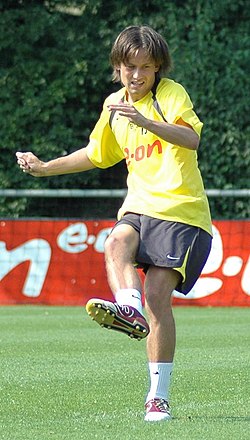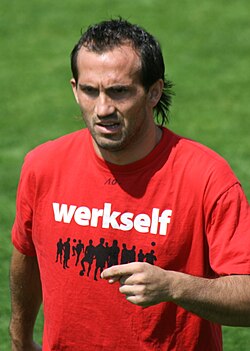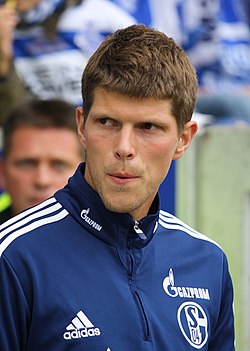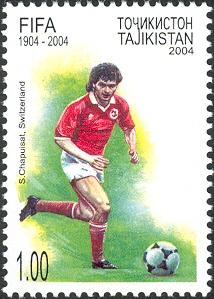Naturalized players
-
 Gerald Asamoah – FC Schalke 04, St. Pauli, Greuther Fürth – 2001–11, 2012–13
Gerald Asamoah – FC Schalke 04, St. Pauli, Greuther Fürth – 2001–11, 2012–13 -
 Cacau – 1. FC Nürnberg, VfB Stuttgart – 2001–14
Cacau – 1. FC Nürnberg, VfB Stuttgart – 2001–14 -
 Sean Dundee – Karlsruher SC, VfB Stuttgart – 1995–98, 1999–2003
Sean Dundee – Karlsruher SC, VfB Stuttgart – 1995–98, 1999–2003 -

 Kevin Kurányi – VfB Stuttgart, Schalke 04, 1899 Hoffenheim – 2001–10, 2015–16
Kevin Kurányi – VfB Stuttgart, Schalke 04, 1899 Hoffenheim – 2001–10, 2015–16 -
 Oliver Neuville – Hansa Rostock, Bayer Leverkusen, Borussia M'gladbach – 1997–2007, 2008–10
Oliver Neuville – Hansa Rostock, Bayer Leverkusen, Borussia M'gladbach – 1997–2007, 2008–10 -
 Paulo Rink – Bayer Leverkusen, 1. FC Nürnberg, Energie Cottbus – 1997–2003
Paulo Rink – Bayer Leverkusen, 1. FC Nürnberg, Energie Cottbus – 1997–2003 -
 Mirko Votava – Borussia Dortmund, Werder Bremen – 1976–82, 1985–97
Mirko Votava – Borussia Dortmund, Werder Bremen – 1976–82, 1985–97






















































